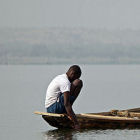By: Yojana Sharma
Send to a friend
The details you provide on this page will not be used to send unsolicited email, and will not be sold to a 3rd party. See privacy policy.
Research projects vital for the Sahel region are in jeopardy across Western Africa, particularly Mali, Mauritania and Niger, as fears about terrorist attacks increase and scientists abandon field work in isolated parts of the region.
France has stepped up its military intervention in the three countries as part of its ‘war on terror’ following the kidnapping of French and African aid workers in Niger’s capital, Niamey, in January. Al-Qaeda in the Islamic Maghreb (AQIM) has claimed responsibility for the kidnappings and the region has been on heightened alert since the death of Osama bin Laden, the founder of al-Qaeda, with a French travel ban already jeopardising a major monsoon research project.
"It is clear that the terrorist risk is affecting our activities. If it lasts too long we will not be able to go on with some of these projects — we are very concerned about this," said Jacques Pages, director-general for resources and infrastructure at CIRAD, a French agricultural research for development centre, which runs a number of projects in the region.
The security costs add an extra drain on limited research funds, said Page. "We will have to ask ourselves whether we can afford to carry out the research."
Local scientists have been confined to capital cities and expatriate scientists have been withdrawn from the countries, leaving crucial cross-border projects understaffed.
Downscaled or terminated
Continuing a desert locust control programme in Mauritania, with implications for countries as far afield as Saudi Arabia and Yemen, was only possible with a military escort.
Rolland Guis, CIRAD’s head officer for Africa said: "March to May is the period of high heat and little vegetation when locusts are gathering on the ground. We have to treat them [with pesticide] before they take flight and form locust clouds, which ravage the crops and destroy everything. This means going out to isolated areas."
"In Niger it’s the same, we can’t go without escort which only departs in convoy, so we have to wait for there to be enough vehicles who want to go. It’s clear you can’t do research that way," he said.
Even projects in surrounding countries have been affected.
A major investigation into Lake Chad’s dramatic shrinkage includes regional studies on the environment and climate change. But poor infrastructure makes it difficult to get to the study areas without passing through areas in ‘no go’ high-risk zones, limiting data collection.
Similarly, researchers from a Senegal-based project on the protection of biodiversity along the Senegal River cannot reach part of the river catchment in Mauritania, leaving data incomplete and proper analysis lacking.
Pages said that many projects will have to be extended for another year to fill the data gap from this year, delaying results across the board.
Vital to continue
Bernard Dreyfus, deputy director for science at the Institute for Development Research, France, said it was vital to continue the projects, even in reduced form, as many African scientists depend on them for their salaries. "What is important to us is to not let our partners — the universities and the researchers — in the lurch," he said.

Research on Lake Chad’s shrinkage and Senegal River’s biodiversity are also affected
Flickr/10b travelling
One way around the security problems is to work from neighbouring countries.
For example, agricultural researchers working on sorghum improvement for Mali have relocated to Burkina Faso.
"For projects in Niger, we bring the students and researchers to Benin to work as a team," said Dreyfus.
But the security risk can spread: northern parts of Burkina Faso are now also considered unsafe. Also, many local researchers are unwilling to leave their families at home to work in neighbouring countries.
Another strategy is to rely more on local researchers to do the field work. "We promote local researchers and give them more responsibility. Or we transfer researchers from other programmes," said Guis.
Several sources said that local researchers seemed unconcerned about the safety risks — probably because their economic concerns outweigh those about personal security, and they fear that, by highlighting the dangers, they might lose their jobs and collaborations with the North.
Still, Guis said that few local scientists are willing to move to difficult areas with their families in order to keep the projects going.
Pages said a "major concern" is the impact this will have on partnerships with the African researchers who are told their collaborators form the North cannot be there, but they still have to do the research, putting themselves at risk.
Since prospective researchers cannot specify their plans for field work with any certainty when applying for grants, funding agencies are reluctant to fund new projects in the region, according to Dreyfus.
"The number of projects in this region that donors will agree to finance has shrunk dramatically," Dreyfus told Scidev.Net. "I know personally of researchers who have abandoned their applications for financing from the French National Research Agency."
More on Capacity building


Script media release
Journalists offered ‘big break’ mentoring opportunity from Radio Nigeria
03/04/19












